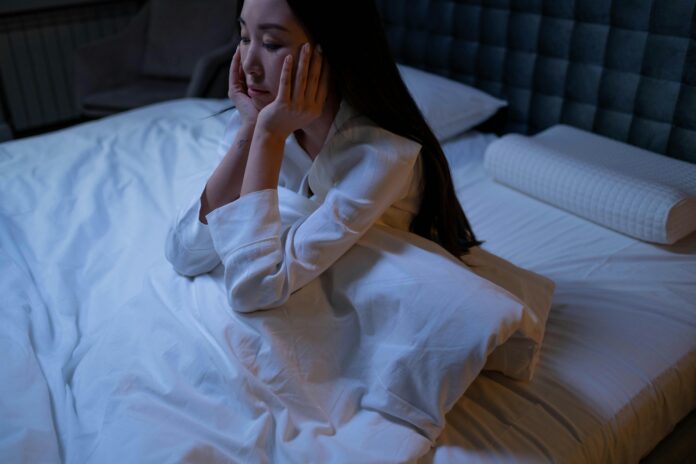Ever lie in bed, wide awake, with a million thoughts swirling in your head? You’re not alone.
Insomnia, particularly anxiety-induced insomnia, is on the rise. Dr. Sunil Bhalla, medical director of the North Toronto Sleep Centre, attributes this surge to our increasingly stressful times.
“I am seeing more patients complaining about being unable to initiate sleep because of racing thoughts in their head, which is often because of underlying anxiety,” Bhalla told the Toronto Star.
This lack of sleep can have serious consequences. Not only does it leave you feeling exhausted and foggy-brained the next day, but chronic sleep deprivation can also lead to long-term health problems.
So why can’t we catch those Zzz’s?
Sleep isn’t just about catching some Zzz’s. It’s a vital biological process that allows our bodies and minds to recharge. Our sleep-wake cycle, also known as our circadian rhythm, plays a crucial role in this process. This internal clock relies on light cues to regulate our sleepiness and alertness. Sunlight tells our body it’s time to be awake and active, while darkness signals the release of melatonin, a hormone that promotes sleep.
Unfortunately, our modern lifestyles often throw our circadian rhythms out of whack. The culprit is our constant exposure to artificial light, especially the blue light emitted by electronic devices like smartphones, tablets, and laptops.
As Azadeh Yadollahi, a senior scientist with the University Health Network’s KITE rehabilitation institute, explained to the Star, “Part of (our sleep-wake cycle) comes from external factors like daylight. But part of that also comes from routine.”
By staring at these screens right before bed, we’re essentially tricking our bodies into thinking it’s daytime, making it difficult to fall asleep.
Beyond blue light, other everyday habits can disrupt our sleep. Inconsistent sleep schedules, heavy meals before bed, and even a snoring partner can all contribute to restless nights.
Students need their sleep
Dr. David Samson, a University of Toronto professor leading the Sleep and Human Evolution Lab (SHEL), emphasizes the link between good sleep and mental health. His research reveals that quality sleep, especially deep sleep, is vital for emotional regulation and memory consolidation.
This is particularly important for students facing academic pressures and potential mental health challenges.
“One of the best ways university students can buttress their mental health is by focusing on their sleep quality,” Samson says to U of T News.
Samson suggests that humans may need less total sleep than previously thought, as long as the sleep is high quality. This challenges the traditional eight hours a night rule, focusing instead on achieving deep sleep for optimal well-being.
The directions to dreamland
If you are struggling to sleep, don’t hesitate to seek professional help. Underlying medical conditions like sleep apnea or anxiety disorders can also contribute to insomnia. While conquering insomnia may take some time and experimentation, the path to a restful night’s sleep is paved with simple changes.
By practicing a relaxing bedtime routine free from electronics and blue light, you can signal to your body that it’s time to wind down.
Imagine swapping your phone for a calming book, or replacing late-night TV with a warm bath and soothing music. These screen-free rituals not only avoid disrupting your circadian rhythm but also create a sense of peace that will help lull you into a deep sleep.
So, put down the phone, and embrace the power of a relaxing routine to finally conquer those restless nights.
Sweet dreams!








































